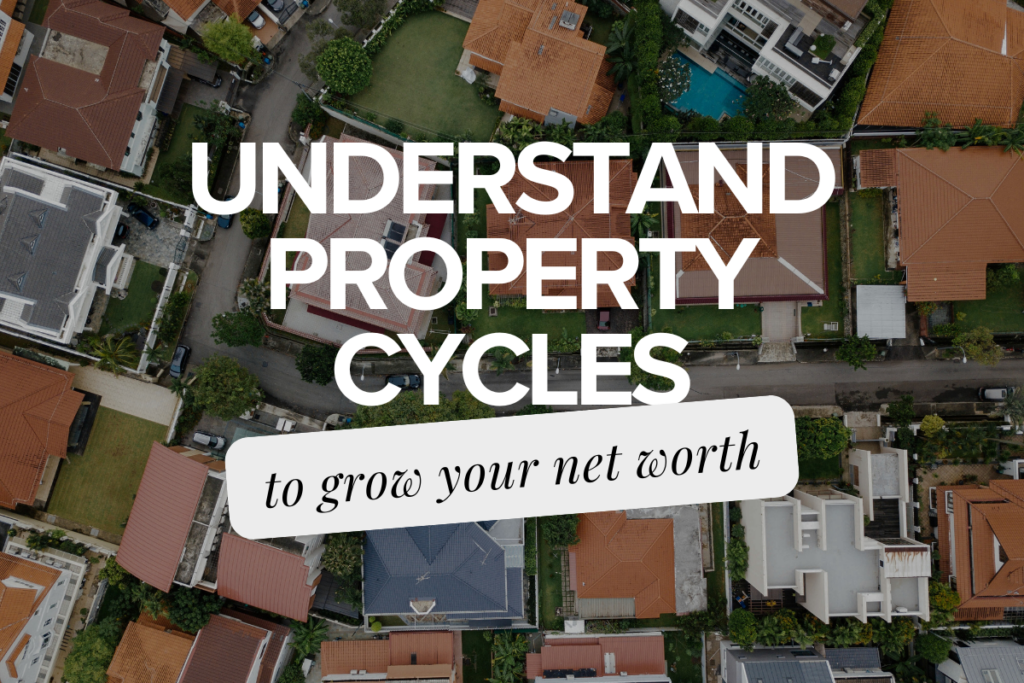
Property markets naturally go through cycles, typically lasting 7-10 years. During these cycles, price changes aren’t linear. Instead, you’ll often see rapid growth during a “boom” period (2-3 years), followed by a “correction” (6-12 months) and then a “plateau” phase (3-4 years).
Typical Property Market Cycle:
Boom (2-3 years) → Correction (6-12 months) → Plateau (3-4 years)
These timeframes are general, and past performance doesn’t guarantee future outcomes. Understanding the cycles can help you make better investment decisions and grow your net worth over time.
Boom Period
During a boom, the market is often referred to as a ‘seller’s market.’ Prices rise quickly, interest rates are low, and buyers compete over limited property stock. It’s an ideal time for sellers, as multiple offers and strong buyer demand drive prices higher.
Correction Phase
Following a boom, corrections occur. Interest rates increase, buyer interest fades, and prices may decline slightly, recovering only part of the boom’s gains. Buyers can often find opportunities during this phase but must navigate more restrictive lending conditions.
Plateau Phase
After the correction comes the plateau—a time when property values stabilize. While houses may not be flying off the market, this is a great period for buyers to negotiate favorable terms and avoid the pressure of a fast-moving market.
Where Are We Now?
During the peak COVID years, Auckland and New Zealand saw a significant boom as disposable incomes surged and travel halted. Many turned to property, leading to rapid price growth. This was followed by a sharp correction, driven by rising interest rates and stricter lending. We’re now in a plateau, with increased supply from developers and cautious sellers who missed the peak.
Is Now a Good Time to Buy?
While no one can predict the future, understanding property cycles offers clues. Key signs of a potential upcoming boom include falling interest rates (which we’re starting to see), banks relaxing lending restrictions, and a decrease in properties for sale. Acting before the next boom can give you a buyer’s advantage, with more options and room for negotiation.
What Would Buffett Do?
Investing during a plateau can be a smart move. You’ll have your pick of properties, more time for due diligence, and the opportunity to negotiate directly with sellers. History suggests prices may never be as affordable as they are today.
Final Thought
If you aim to grow your wealth through property, hold onto your investments for at least one full cycle. Timing the market is difficult, but staying in it can yield significant long-term returns.
Ready to make your next real estate move? Reach out today—we’re here to help guide you through the cycle.
Ready to move?
We would love to help. Get in touch to discuss your next real estate move.


